Research and development, digital technologies
Nornickel’s contribution to the Science and Universities national project
Related federal projects
- Development of science and scientific-and-production cooperation;
- Development of advanced research and development infrastructure.
Key initiatives and focus areas
- Activities of Gipronickel Institute and Nornickel Digital Lab;
- Cooperation with universities to develop and test advanced technologies and train highly skilled staff;
- Support for graduates of vocational education institutions;
- Development of cooperation with the Russian Academy of Sciences.
Research and development
R&D activities
Nornickel has adopted an R&D Management Policy defining the setup and implementation of relevant initiatives.
The key principles underpinning our R&D management:
- developing and fostering the Company’s R&D potential;
- identifying priority areas as regards research, technology and engineering, and resource allocation to such areas;
- putting into action a production and technical development strategy by upgrading capacities to improve production and management quality and implementing cutting-edge, costeffective and eco-friendly technologies developed in-house.
Nornickel’s key research and development projects and feasibility studies (R&D and FS) continue to focus on fundamental environmental improvements, the development and implementation of projects set to upgrade existing operations, build new facilities, and maintain the Company’s financial strength.
Since 2013, Nornickel has had an R&D Panel working to improve the quality of the scientific and technical solutions.
Gipronickel Institute is Nornickel’s core R&D platform, one of Russia’s largest research and design centres for mining, concentration, and metallurgy. The institute studies samples of ore deposits and rocks, as well as valuable non-ferrous feedstock, such as nickel, cobalt, copper, aluminium, tin, tungsten, molybdenum, mercury, sulphur, etc. The Company also engages domestic and foreign R&D and engineering companies, and collaborates with numerous Russian universities.
Gipronickel performs a substantial amount of work both for the Company, including the Head Office and Polar Division, and for Russian business units, such as Kola MMC, Medvezhy Ruchey, Arctic Palladium, and GRK Bystrinskoye. A significant part of the work is focused in some way or other on addressing environmental issues.
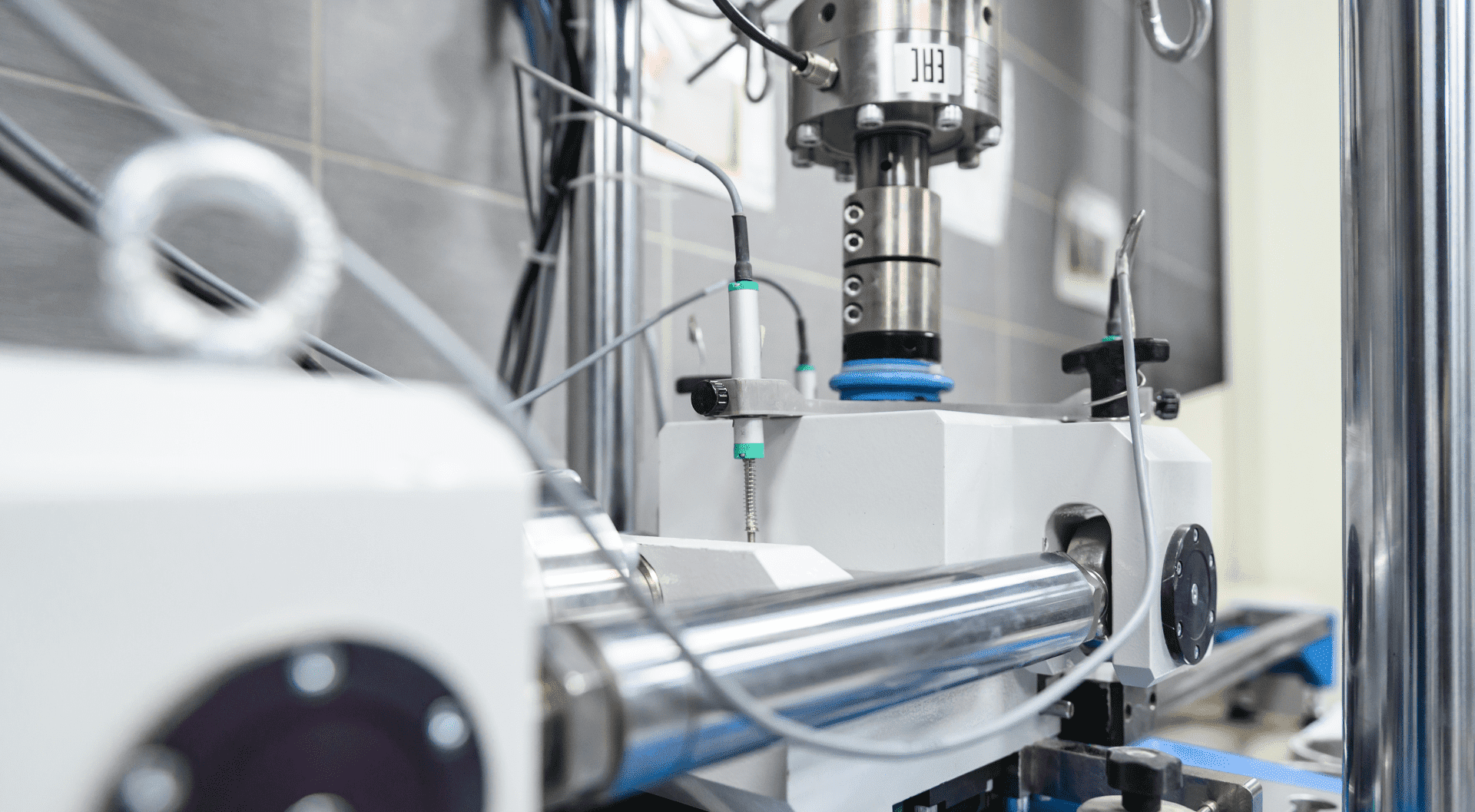
In addition to research within the Group, Gipronickel also provides R&D services to third parties, mainly in the metals and chemical industries.
In 2022, Gipronickel Institute completed a wide scope of work on the mining, concentration, and smelting operations of MMC Norilsk Nickel.
For example, for Polar Division’s Skalisty Gluboky mine, using advanced technical solutions for autonomy and comprehensive automation to minimise headcount in mine workings, research was carried out to select the most efficient configuration of mine workings, optimal mining plan based on mining capabilities and ventilation, as well as the possibility for sequential mining of disseminated ores as rich ores are retired, to ensure that the mine’s annual output is maintained at the same level without major drops.
In order to solve the environmental problems of the Norilsk Industrial District by shutting down the existing converter operations, Copper Plant is proceeding with the construction of a continuous converting facility consisting of two units connected in series: the Vanyukov converter furnace which continuously smelts granulated copper matte to produce blister copper, liquid converter slag and process gases, and the Vanyukov slag cleaning furnace, which continuously cleans converter slag by its deep reduction to produce metallic copper-nickel alloy containing iron and cobalt, as well as waste slag and process gases. The continuous converting technology will solve the main environmental problems of copper production by transferring the sulphur content of the feedstock into a continuous stream of highly concentrated gases ready for disposal as contemplated by the new converting process.
Kola MMC continued to implement its copper production project using the roast-leach-electrowin technology. This technology is designed to process sulphide copper concentrates from flotation-based matte separation by using a modern and environmentally friendly technology, with the output to total 150 kt of marketable-quality copper cathodes. The roast-leach-electrowin technology will:
- reduce the cost of finished products by cutting operating costs, losses, and turnover;
- ensure that regulatory environmental standards are met through obtaining a flow (constant by composition) of gases containing SO2 and their capturing;
- increase direct copper extraction for marketable products.
In 2022, Nornickel launched a number of projects to improve environmental performance:
- pilot tests to treat Komsomolsky Mine’s drained water kicked off. The project envisages simultaneous operation of several reverse osmosis and electrodialysis units;
- we tested an innovative technology of obtaining modified sulphur, which has good prospects of becoming the feedstock for the construction industry and reducing atmospheric sulphur emissions. We got test samples of asphalt, with prototypes already used to check if asphalt concrete blends can withstand climate of the Far North;
- as part of our effort to combat climate change and reduce GHG emissions, we studied the ability of tailings to absorb СО2 from the air. We will keep developing the engineered mineralisation technology and testing accelerated mineralisation of tailings.
Digital technology
Nornickel’s contribution to the Digital Economy national project
Related federal projects
- Information infrastructure;
- Information security;
- Digital technology.
Key initiatives and focus areas
- Norilsk Nickel’s Robotisation Service;
- Implementation of the Technological Breakthrough project pipeline;
- Automation of management and operating processes;
- Creation of the Data Lake digital platform;
- Development of communication systems and electronic communications for employees and local communities.
Technological progress and promotion of innovative tools are essential elements for streamlining business processes and enhancing industrial safety at Nornickel.
In 2022, amid geopolitical risks and external challenges, the Company continued to run digital projects, while taking measures to maintain business continuity. Thanks to proactive management decisions in the reporting year, the Company managed to achieve high IT stability despite great uncertainty and external pressure.

Technology-wise, non-ferrous metal mining is one of the most complex industries. From the mine to the marketing of the finished product, terabytes of data are collected and processed to bolster productivity and improve working conditions. To collect, process Big Data at production sites and foster cutting-edge developments, the Company has implemented the Data Lake digital platform project. Data Lake is essentially a technology platform to address business challenges using Big Data and artificial intelligence / machine learning.
In 2022, the infrastructure for launching several AI use cases was designed on the basis of Data Lake. For example, we launched a prototype of a predictive algorithm for managing dissolution and filtration processes in the nickel tank-house at Kola MMC.
A dedicated environment is also being created to develop machine learning solutions. The environment helps handle tasks such as data mining, development of machine learning applications.
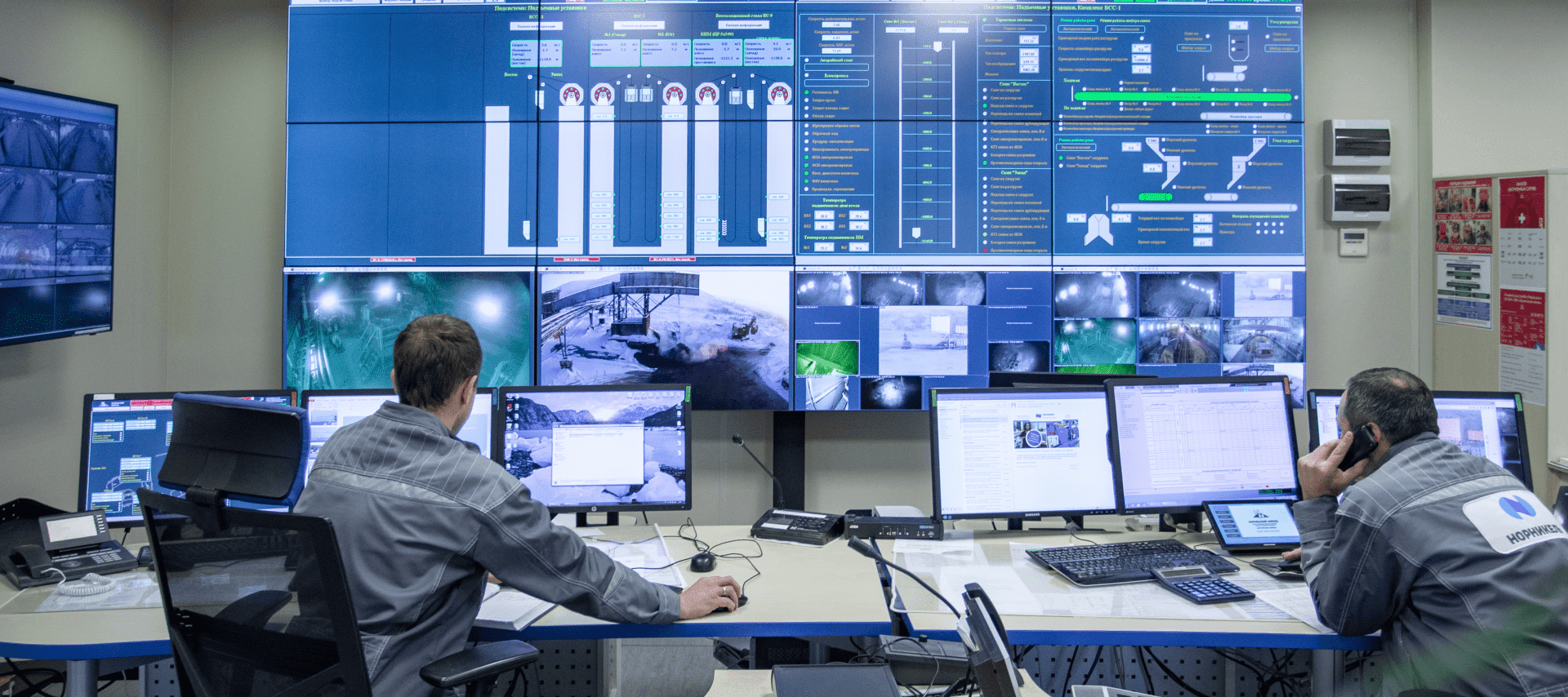
Initiatives to ensure technological independence became a new and high-priority focus of Nornickel’s digital development strategy.
In 2022, the Company assessed its IT landscape, and systems based on foreign software accounted for 18%, of which one third need to be replaced. The remaining systems can be used without significant risks for several years.
In 2022, Nornickel’s IT systems were isolated well in advance of mass failures; equipment and spare parts available in stock in Russia were additionally procured. Project ranking criteria were developed for Nornickel’s IT portfolio based on the impact of restrictions with a focus on the availability of Russian counterparts, in-house development capabilities, and already purchased licences.
Extensive measures were taken to ensure the technological independence of industrial automation systems. In 2022, a special laboratory was established at Polar Division to test domestic solutions for the automated process control system.
In the reporting year, Nornickel adopted a Strategy for Ensuring Consistency of Measurements, which includes an initiative to improve technological independence. In the process of sourcing local counterparts, more than 360 manufacturers were reviewed across 119 major groups of gauges. In particular, a counterpart of PR-1K, a domestic radioisotope density meter, was found and tested in the real production environment on the Medvezhy Ruchey site.
With the assistance from Russian infrastructure solutions market players, Nornickel tested the replacement critical systems and IT equipment for compliance with the corporate standards and information security requirements, as well as for compatibility with the existing IT landscape. The replacement solutions enabled the Company to continue performing critical tasks.
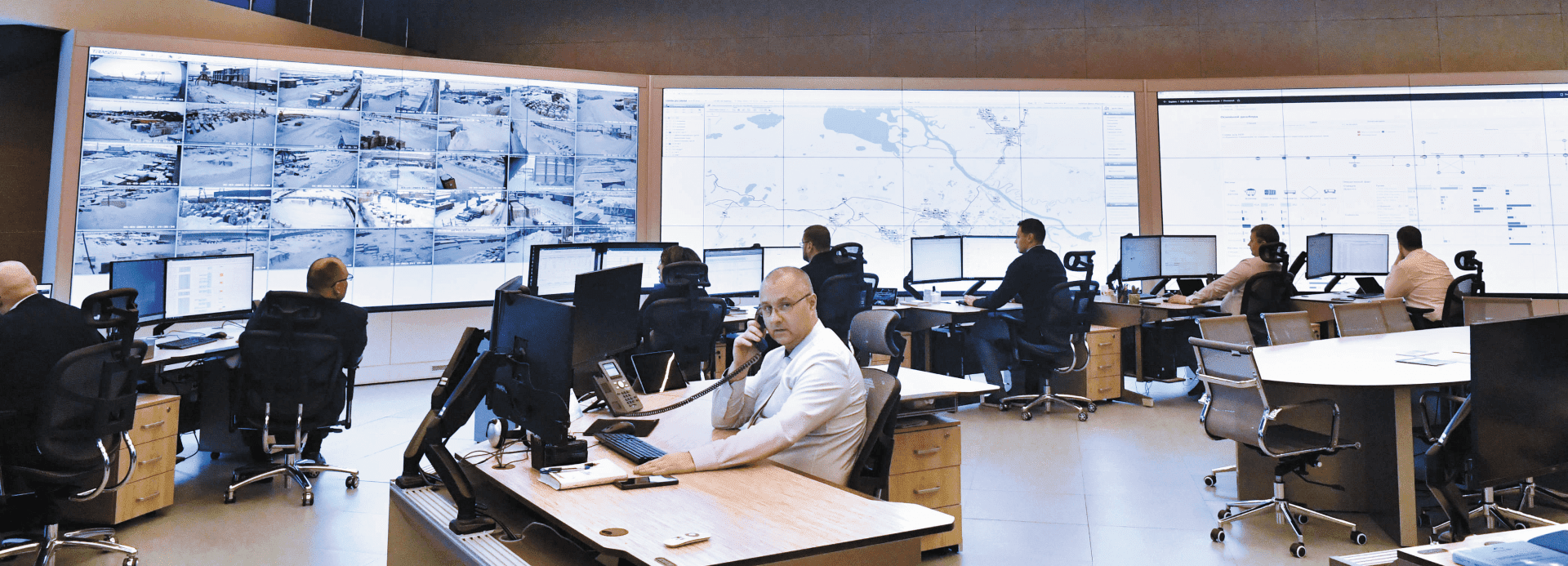
In 2022, the Company continued its programme to build and upgrade its networks.
In conjunction with a number of Russian manufacturers, the development of a network switch with enhanced performance and data transfer speed to be deployed in the mines is underway. The combination of performance and rugged body requires effort from the development teams, but this solution will not only meet today’s needs, but will also support the future growth of traffic from unmanned mine technologies and remotely controlled equipment.

Improving employees’ digital literacy remains one of the Company’s strategic priorities. Various training formats are used to develop digital competencies: workshops, online courses, webinars, and business games. At the same time, we foster creative potential of and involve our employees’ children in the training process, immerse teenagers and youth in the IT profession in the cities where the Company operates.
To develop young professionals, the Company has launched a master’s programme, AI Transformation in Industry, jointly with the MIPT centre for educational programmes.
This is unique programme, as it was created directly for the needs of the mining company. Students receive multidisciplinary training in mathematics, programming and IT, and gain practical experience by continuously applying knowledge in addressing the Company’s current business needs. In 2022, the first group of MIPT students completed more than 70% of their field internship at Nornickel.

The Company has launched a major initiative to pilot and gradually integrate a multifunctional Linux-based infrastructure solution into the corporate environment. Migration to the target environment is planned with an increased focus on business processes and will be phased in via a heterogeneous environment combining hardware running Microsoft and Linux operating systems.
Projects previously initiated to develop enterprise data centres continued this year with revisited goals and approaches to implementation. Jointly with IXcellerate, site preparation for a new data centre and IT equipment support systems in Moscow was completed. Concepts for data centres in Monchegorsk and Norilsk were designed.
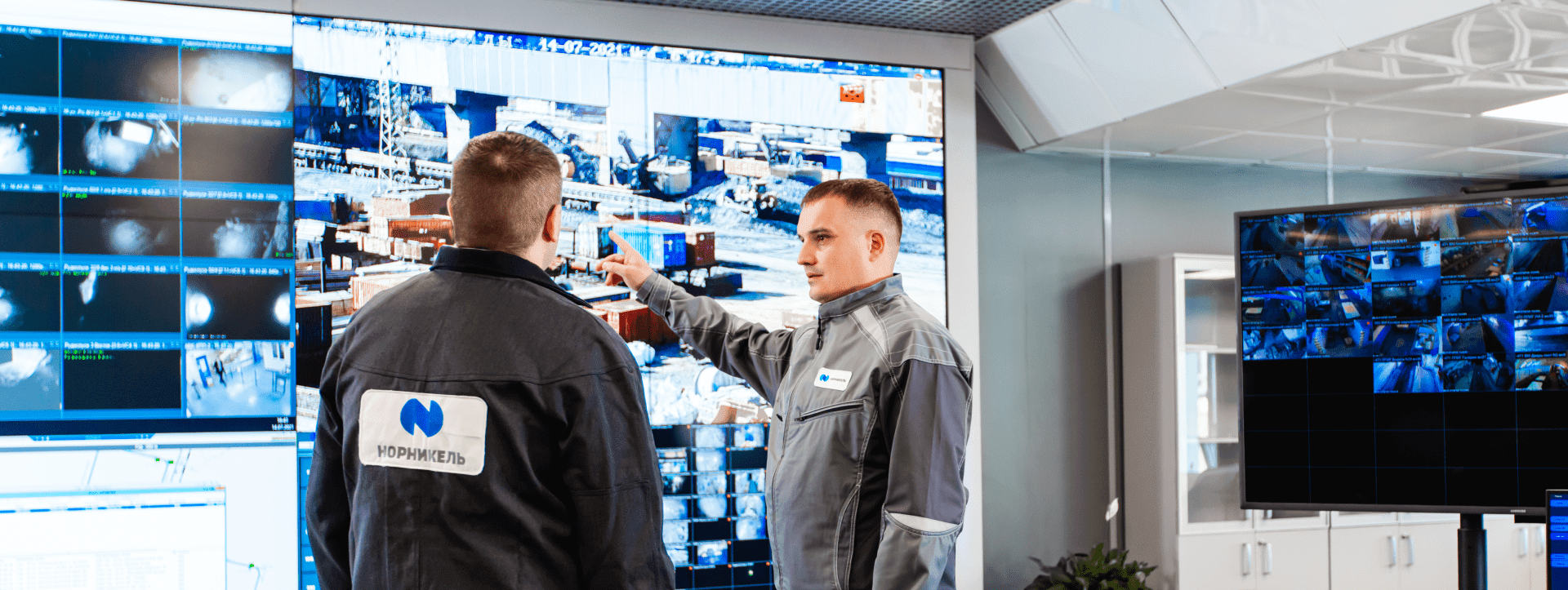
In 2022, Nornickel together with Rostechnadzor participated in the Russian Government’s experiment to launch a system for remote control over industrial safety.
Nornickel actively deploys systems to improve occupational health and safety using AI-based video analytics. In 2022, the system for monitoring personal protective equipment of production personnel was further developed:
- new detection types and parameters were added;
- the solution was integrated with personnel positioning and face recognition modules from third-party Russian software vendors.
Development of this system boosts the effectiveness and quality of safety compliance monitoring and the level of safety culture in production. In 2023, we plan to continue pilot tests of the technology from several advanced vendors at the production facilities and construction sites of Norilsk Division.
In 2022, design of a digital engineering and operating model (3D model) was completed at Kola MMC. This model helps improve tracking and positioning of employees and vehicles, monitor conditions in special areas using video cameras and video stream projection onto the model, and track changes on a timeline using laser scanning. The Company plans to make a transition from the 3D model to a full-fledged digital twin of Kola MMC.
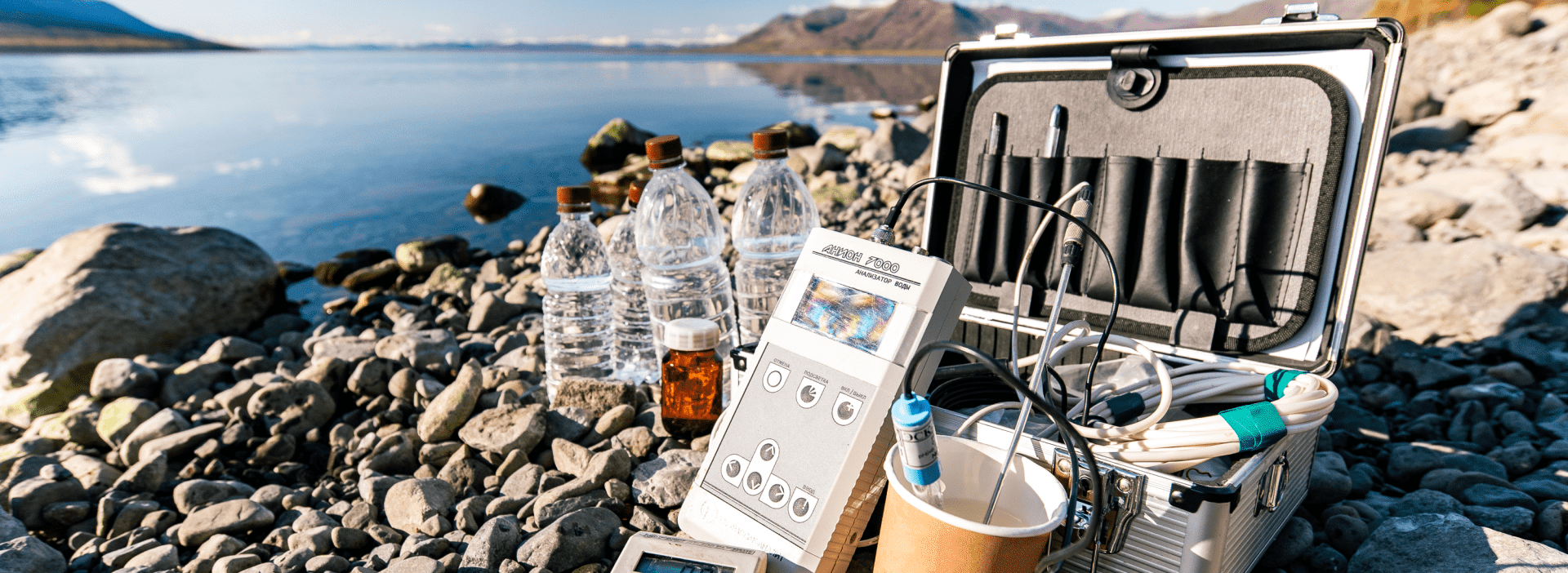
Nornickel is developing a prototype environmental monitoring system based on the digital twin of Nadezhda Plant. The pilot will be our first step towards designing an integrated information and analytical system using a unified methodology for calculating environmental impact indicators. The system will be able to interpret and verify the data obtained, produce forecasts and reports, and create mathematical and simulation models of environmental processes.
Copper Plant had a test launch of the system for automated control of pollutant emissions that have an adverse impact on the environment. The pilot solution will help assess whether domestic equipment can be used, taking into account the nature of the Company’s production chains and conditions.
Also, Nornickel will start developing a mathematical model of industrial emissions in 2023. The software package will replace expensive and complex tools of instrumental emission control.
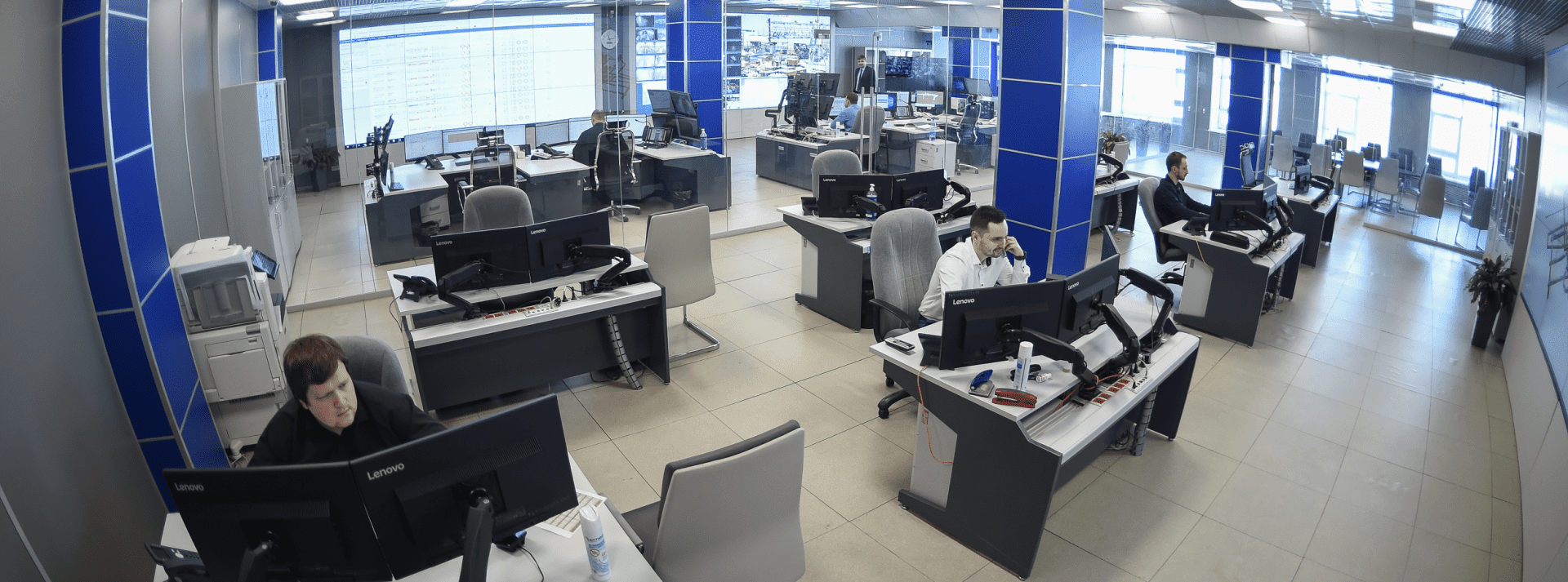
The Company continues its Integrated Document Management programme set to fully automate and digitally transform business processes for handling electronic legal documents and data. In 2022, key work aimed at digitalising contract-related business processes was completed.
Nornickel operates a Tax Monitoring System. Following the transition to this platform, over 90% of the Group’s turnover has been monitored by the tax authorities in real time since 2021, and the platform continues to evolve.
Interaction with the Company’s suppliers and contractors is also integrated into the digital system. Competitive procurement procedures, contract execution processes and feedback are managed through a dedicated section for suppliers on the Company’s website, while conferences are held via an automated SRM system. In 2021–2022, new functions were introduced in the supplier online account in the processes of contract negotiation and execution enabling special payment terms for goods or services between the buyer and the supplier to accelerate payment in exchange for a reduced price or discount. The solution is integrated with electronic document management to speed up verification and generation of accounting documents for works/services and inventory and with the Oracle Transportation Management solution to simplify the transport ordering process and the data exchange system to store archived documents. To date, more than 650 different companies across the country have been invited to use the new service.
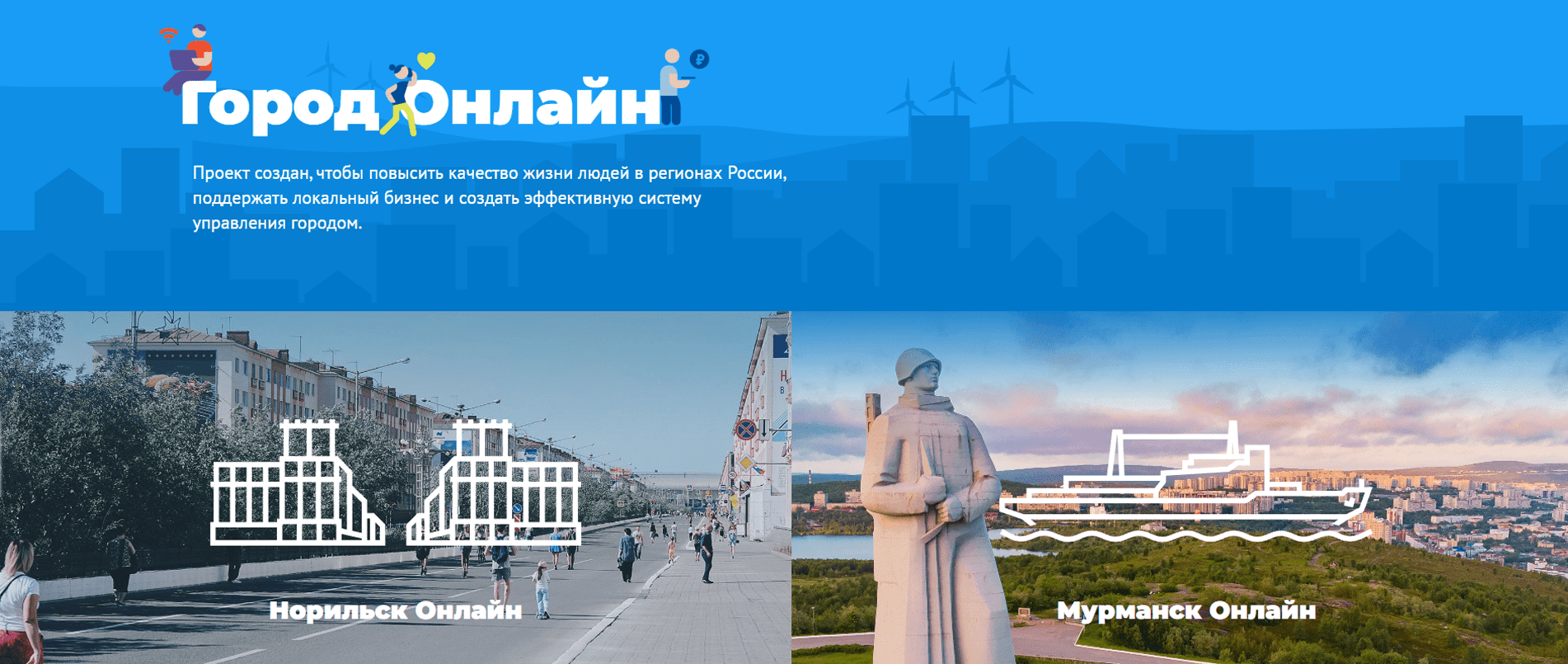
The City Online project is set to improve the quality of life of people living in small and medium-sized towns in the Far North and the Far East by providing infrastructure and digital services in various areas of life and making habitual services more accessible to remote areas.
The platform is available as a website and a mobile app in five cities: Norilsk, Dudinka, Monchegorsk, Murmansk, and Krasnoyarsk. Currently, the web and mobile versions of the platform offer 28 and 16 services, respectively. The most popular are GO.Media, Playbill, Broadcasts (web version only), Map, and Transport. In the near future, we plan to develop services that will help municipal employees promptly interact with each other and with residents of the city in the shared information space.
Major City Online infrastructure services include:
- a city air monitoring programme with a predictive environmental assessment model in Norilsk, Monchegorsk, Nickel, and Zapolyarny seeking to improve the urban environment quality and the comfort of people’s lives;
- a mobile school education system in the Murmansk Region. The system was deployed in 2022 and has already made a better and more equal level of education available to different social groups and minimised the impact of downtime days during school period.
To meet the Company’s production needs with high-speed communication and to improve the quality of life in the Norilsk Industrial District by creating conditions for broadband Internet access, enhancing the quality of services and expanding the range of communication services provided, Nornickel implements the Fibre Optic Communication Line (FOCL) Construction Project in Norilsk. The project involves the construction of a 956 km fibre optic communication line from Novy Urengoy to Norilsk.
In 2022, in response to growing demand from the population in the Norilsk District, the bandwidth of the transport network was increased from 40 Gbps to 200 Gbps, which now enables customer traffic to grow to 85 Gbps, with less than 1% of traffic used for the Company’s needs.
As mobile and fixed-line Internet access remains one of the key conditions for high quality of life in the modern world and is the driver behind digital services, in order to improve the availability of high-quality communications, we held a promotion campaign in 2022 for telecom operators providing services to end users, involving an average discount of 15%. The new tariff policy helped develop high-speed tariff plans of operators in the city and resulted in a twofold more affordable pricing on average in 2022. In addition, 15 schools in the Norilsk Industrial District were connected to the Internet on preferential terms.